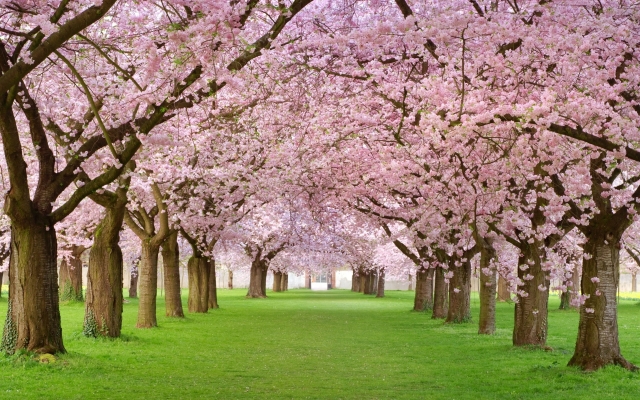
Complete each sentence choosing the correct option
Any snow begins to melt, swelling streams with runoff and any frosts become less severe. In climates that have no snow, and rare frosts, air and ground temperatures increase more rapidly.
Many flowering plants bloom at this time of year, in a long succession, sometimes beginning when snow is still on the ground and continuing into early summer. In normally snowless areas, "spring" may begin as early as February (Northern Hemisphere) or August (Southern Hemisphere), heralded by the blooming of deciduous magnolias, cherries, and quince. Many temperate areas have a dry spring, and wet autumn (fall), which brings about flowering in this season, more consistent with the need for water, as well as warmth. Subarctic areas may not experience "spring" at all until May.
While spring is a result of the warmth caused by the changing orientation of the Earth's axis relative to the Sun, the weather in many parts of the world is affected by other, less predictable events. The rainfall in spring (or any season) follows trends more related to longer cycles—such as the solar cycle—or events created by ocean currents and ocean temperatures—for example, the El Niño effect and the Southern Oscillation Index.
Practice your writing skills by discussing the questions below
- How do you celebrate springtime?
- How long does spring last in your country?
- Do you prepare any special spring food? If yes, what is it?


 Download Google Chrome
Download Google Chrome Download Mozilla Firefox
Download Mozilla Firefox Download Opera
Download Opera